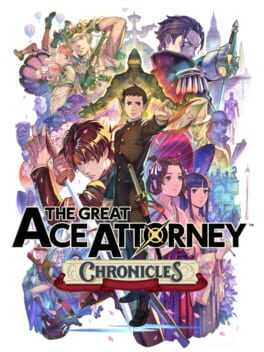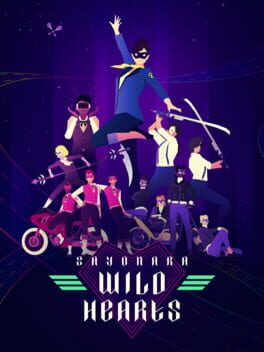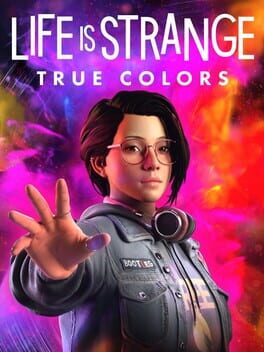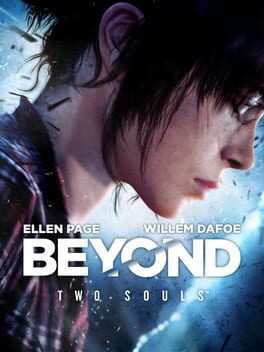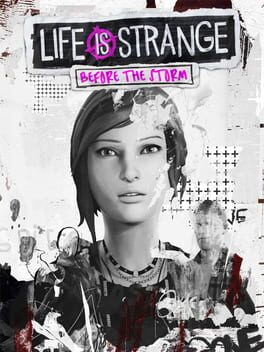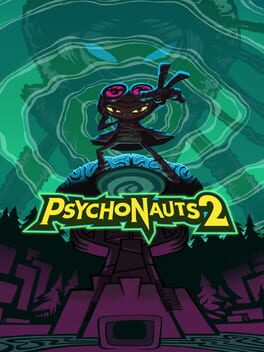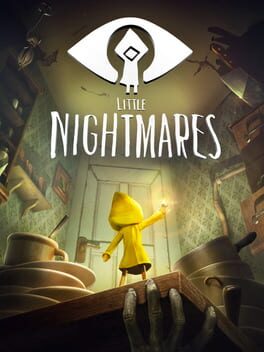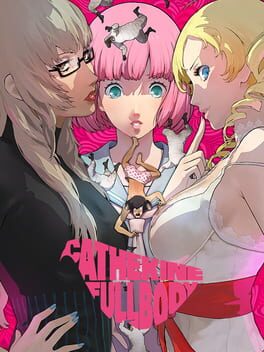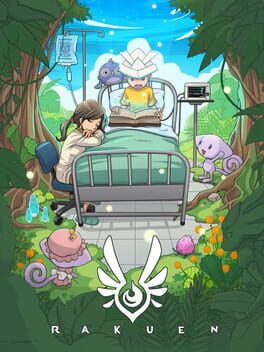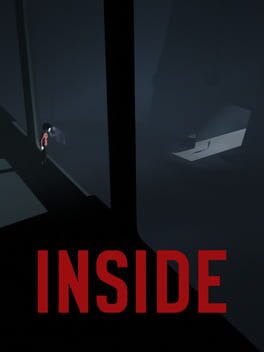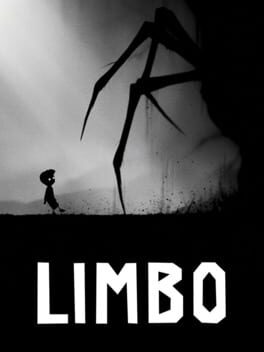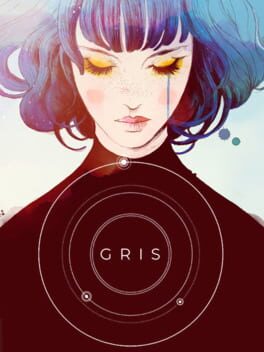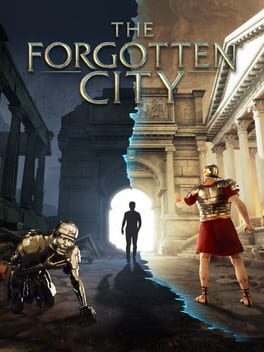adjansen
In defense of the Great Ace Attorney Chronicles, the presentation is fabulous. The steampunk character designs are snazzy, the animations are full of personality and life, the soundtrack is exhilarating, and there is plenty of the signature Ace Attorney goofball charm on display. As a cherry on top, one of the main characters is a broody gay Castlevania villain who alludes with suggestive frequency to his “hallowed chalice” and probably does nothing but listen to Wagnerian opera and file his nails in his free time. (Also, Susato and her little book <3)
Unfortunately it’s also possible to build a strong case against GAAC. Because I’m a killjoy, and because these games seem to get a free pass from most people, let’s look at some evidence. In this massive and lovingly rendered cast, there are, by my count, roughly forty named male characters, of every shape and size and age, two-thirds of whom are canonically older than thirty. (Of those over thirty, six play prominent recurring roles.) If you are beginning to suspect there might be fewer women in the game, congrats, you would be right! There are, in contrast, fifteen named women, four of whom are over thirty; of those four, only one is a semi-important character (the bad one, naturally).
Luckily, with such delightful character designs, I’m sure there will be plenty of variety in how the women look, right? Heck yeah—as a matter of fact there are two (2) female characters who are not conventionally attractive! (Both characters are simply fat—hardly the kind of inventive caricature we find in the male designs.) For further diversity, we have a Cute Judicial Assistant, Sexy Victorian Assassin, Cute Prima Ballerina, Cute Cockney Ragamuffin, Cute Girl Genius/Newspaper Serial Author, Cute Newlywed, Cute Yuri Bait, Sexy Witch, Sexy Housewife, Sexy Coroner, Spooky-Cute Goth Daughter, and uh Feisty-Cute Firecracker Salesgirl.
I know this might seem like outrageous nitpicking, and yes I know video game characters are designed to be appealing, and yes some of the men are hot. I’m not anti-hot-people. But in a game with so much care put into the art style, the disparity is bleak. If you can come up with forty different faces for dudes, you can probably come up with more than three faces for women. Jesus.
One could raise the old familiar argument: “Something historical blah blah but it was like that back then!” To which I would say: Holograms. Also this is a game in which a top-secret case highly sensitive to British national security is handled by a visiting student and a mysterious amnesiac. Absolutely nothing in GAAC makes any goddamn historical sense whatsoever. If the creators cared about history, color photography would not exist, and the queen would be aghast at all the foreigners running rampant in her courtroom.
Which brings me in a roundabout way to the story itself, which inhabits an awkward limbo between wacky cartoon and social commentary. Takumi seems to want to say something about racism, imperialism, the justice system, and government corruption, but he is significantly hampered by not understanding any of these things. Racism in the Takumi-verse is the result of a Japanese guy murdering your family. Corruption is the result of bad apples. Crime is the result of “letting the darkness consume you,” rather than, say, not having food. And so on. Worst of all, his critique of empire is one-directional. There is no attempt to draw any parallel between the British Empire and Imperial Japan. In fact, the narrative goes to some length to exonerate Japanese characters (except a tiny few) of wrongdoing; none of them have the racist misconceptions that the European characters are shown to have.
Lastly, holy moly, this game is looong, and I don’t think the fact that it was originally two games is much of an excuse. Way too much of GAAC—a solid 40% in my estimate—is artificial and unnecessary padding. You would not BELIEVE the mind-boggling number of gavel thwacks and podium pounds you will endure before end credits. It is at least four billion. The jury system is a pointless contrivance that only serves to draw out trials to agonizing lengths, and there is so much mind-numbing repetition of witness testimony and Herlock hijinks. Considering there is really just one big story being told here, there was no reason (except ¥¥¥) to release it as two games in the first place.
There is, however, a neat tap-dancing bit near the end that is almost worth the slog.
VERDICT: Guilty!! (of making me spend more than 60 hours on a game—using a guide no less, yikes)
Unfortunately it’s also possible to build a strong case against GAAC. Because I’m a killjoy, and because these games seem to get a free pass from most people, let’s look at some evidence. In this massive and lovingly rendered cast, there are, by my count, roughly forty named male characters, of every shape and size and age, two-thirds of whom are canonically older than thirty. (Of those over thirty, six play prominent recurring roles.) If you are beginning to suspect there might be fewer women in the game, congrats, you would be right! There are, in contrast, fifteen named women, four of whom are over thirty; of those four, only one is a semi-important character (the bad one, naturally).
Luckily, with such delightful character designs, I’m sure there will be plenty of variety in how the women look, right? Heck yeah—as a matter of fact there are two (2) female characters who are not conventionally attractive! (Both characters are simply fat—hardly the kind of inventive caricature we find in the male designs.) For further diversity, we have a Cute Judicial Assistant, Sexy Victorian Assassin, Cute Prima Ballerina, Cute Cockney Ragamuffin, Cute Girl Genius/Newspaper Serial Author, Cute Newlywed, Cute Yuri Bait, Sexy Witch, Sexy Housewife, Sexy Coroner, Spooky-Cute Goth Daughter, and uh Feisty-Cute Firecracker Salesgirl.
I know this might seem like outrageous nitpicking, and yes I know video game characters are designed to be appealing, and yes some of the men are hot. I’m not anti-hot-people. But in a game with so much care put into the art style, the disparity is bleak. If you can come up with forty different faces for dudes, you can probably come up with more than three faces for women. Jesus.
One could raise the old familiar argument: “Something historical blah blah but it was like that back then!” To which I would say: Holograms. Also this is a game in which a top-secret case highly sensitive to British national security is handled by a visiting student and a mysterious amnesiac. Absolutely nothing in GAAC makes any goddamn historical sense whatsoever. If the creators cared about history, color photography would not exist, and the queen would be aghast at all the foreigners running rampant in her courtroom.
Which brings me in a roundabout way to the story itself, which inhabits an awkward limbo between wacky cartoon and social commentary. Takumi seems to want to say something about racism, imperialism, the justice system, and government corruption, but he is significantly hampered by not understanding any of these things. Racism in the Takumi-verse is the result of a Japanese guy murdering your family. Corruption is the result of bad apples. Crime is the result of “letting the darkness consume you,” rather than, say, not having food. And so on. Worst of all, his critique of empire is one-directional. There is no attempt to draw any parallel between the British Empire and Imperial Japan. In fact, the narrative goes to some length to exonerate Japanese characters (except a tiny few) of wrongdoing; none of them have the racist misconceptions that the European characters are shown to have.
Lastly, holy moly, this game is looong, and I don’t think the fact that it was originally two games is much of an excuse. Way too much of GAAC—a solid 40% in my estimate—is artificial and unnecessary padding. You would not BELIEVE the mind-boggling number of gavel thwacks and podium pounds you will endure before end credits. It is at least four billion. The jury system is a pointless contrivance that only serves to draw out trials to agonizing lengths, and there is so much mind-numbing repetition of witness testimony and Herlock hijinks. Considering there is really just one big story being told here, there was no reason (except ¥¥¥) to release it as two games in the first place.
There is, however, a neat tap-dancing bit near the end that is almost worth the slog.
VERDICT: Guilty!! (of making me spend more than 60 hours on a game—using a guide no less, yikes)
2019
True Colors is much better than Deck Nine's previous effort, Before the Storm, probably because this one is a new story with original characters. If you are still playing the Life Is Strange games at this point you pretty much know the routine: the story will be tropey and melodramatic, with lots of angst and coming-of-age stuff, the setting will have kind of a "cozy Americana" vibe, there will be INDIE MUSIC and a dash of the supernatural. True Colors checks all the boxes, and even goes above and beyond in a few areas, like in a creative LARPing sequence.
What True Colors doesn't manage to capture from the first game (LiS 2 might, I haven't finished it yet) is that particular teenage sense that your problems are cosmic in significance, which is imo what makes the first game work despite being extremely silly. Even if you hate Max and Chloe, the game works really hard to convince you that their bond is somehow holding the universe in balance, which is how attachments you have at that age can feel.
True Colors is just as melodramatic—some very heavy shit happens, and the gameplay revolves around sensing other people's emotions, and at one point you can literally sing "Creep" to yourself alone in your room lmao—but never in a way that feels bigger than Alex herself or the cute little mountain town whose name I totally forgot. The stakes never feel larger than life, which, in a melodrama, a genre whose basic principle is "go big or go home," seems like a bad move. Let me feel GRIEF. Let me RAIL against the INDIFFERENT SKY. Let me FLIP OFF the clouds and SCREAM.
Also I swear to god there are so many white boys wearing flannel in this mfin town how on earth do you tell them all apart
What True Colors doesn't manage to capture from the first game (LiS 2 might, I haven't finished it yet) is that particular teenage sense that your problems are cosmic in significance, which is imo what makes the first game work despite being extremely silly. Even if you hate Max and Chloe, the game works really hard to convince you that their bond is somehow holding the universe in balance, which is how attachments you have at that age can feel.
True Colors is just as melodramatic—some very heavy shit happens, and the gameplay revolves around sensing other people's emotions, and at one point you can literally sing "Creep" to yourself alone in your room lmao—but never in a way that feels bigger than Alex herself or the cute little mountain town whose name I totally forgot. The stakes never feel larger than life, which, in a melodrama, a genre whose basic principle is "go big or go home," seems like a bad move. Let me feel GRIEF. Let me RAIL against the INDIFFERENT SKY. Let me FLIP OFF the clouds and SCREAM.
Also I swear to god there are so many white boys wearing flannel in this mfin town how on earth do you tell them all apart
2013
A painful example of a game trying to imitate Hollywood movies in the least subtle most agonizingly self-serious manner imaginable. The only way to atone for this game's existence would be for Elliot Page to kick David Cage down a long flight of stairs (which I hope happens someday, let's be real that would be tight)
This review contains spoilers
LiS:BtS (no connection to the k-pop sensation) is a kinda fun teen delinquent/disaster lesbian simulator that suffers from excessive devotion to canon. Case in point: the ending. Ohhhh did the ending of this game piss me off. I mean, it strikes an effectively bittersweet note (thanks in part to "Bros" by Wolf Alice being a banger) but it would have been so easy to strike an even more thought-provoking one by just...letting you run away from Arcadia Bay with Rachel??
For a game series built on choose-your-own-adventure mechanics that was willing in the first game to play around with butterfly effect/monkey paw/multiple universe ideas, it seems especially egregious that you have no control over the outcome of this one. Think about it: If you run away with Rachel, she survives and you can live out your dreams together, but Chloe and Max never meet again and the events of the original game are erased from the universe. If you stay in Arcadia Bay, you are, in a way, sacrificing Rachel so that Chloe and Max can reunite and make the events of LiS possible. This would lend so much more gravity to the ending and really hammer home the wistfulness they clearly want you to feel.
I think if Deck Nine had felt more freedom to experiment, and less obligation to include cameos, this could have been a more interesting experience than what it is, which is basically Fanfiction I Would Feel Slightly Embarrassed to But Might Still Recommend to a Friend Who Was Into That Kind of Thing: The Game.
For a game series built on choose-your-own-adventure mechanics that was willing in the first game to play around with butterfly effect/monkey paw/multiple universe ideas, it seems especially egregious that you have no control over the outcome of this one. Think about it: If you run away with Rachel, she survives and you can live out your dreams together, but Chloe and Max never meet again and the events of the original game are erased from the universe. If you stay in Arcadia Bay, you are, in a way, sacrificing Rachel so that Chloe and Max can reunite and make the events of LiS possible. This would lend so much more gravity to the ending and really hammer home the wistfulness they clearly want you to feel.
I think if Deck Nine had felt more freedom to experiment, and less obligation to include cameos, this could have been a more interesting experience than what it is, which is basically Fanfiction I Would Feel Slightly Embarrassed to But Might Still Recommend to a Friend Who Was Into That Kind of Thing: The Game.
2021
Okay possible hyperbole, but I think Raz might be one of the best video game character designs ever, up there with Mario, Pyramid Head, the King from Katamari, et al. He embodies so perfectly (apart from a lack of gender options which would have been nice, though I understand logistically why they were nigh impossible to provide) what every ten-year-old kid imagines they would look like as a cool spy. Like, oh hell yeah, I would wear some big-ass goggles on my head. I don't know why, I just would—and you bet your ass they would start glowing whenever I put them on. Oh and as a spy I would naturally rock a trenchcoat and gloves. And maybe, like, a turtleneck? Yeah, adults wear those. They seem classy. And one unruly lock of hair would always be escaping from my cool helmet, to show that I live on the wild side...
I fixate on this point because, if Psychonauts 2 illustrates anything, it is the power of good art design. The art team pretty much carries the game imo. Of course there are other elements at work here—gameplay, level design, writing, acting—and they certainly do their part, but I don't think any of it would have gripped me without the visual presentation. Maybe I am just a sucker for stylized graphics over realism, but I found this ineffably mid-2000s vaguely Dreamworks-adjacent eccentric animated film world so gosh-darn inviting. Given that I haven't even played the first game, I was surprised by how nostalgic this one made me feel.
So the throwback vibes are A+, while the rest is...a solid B? I have no major complaints—everything works insofar as I was compelled to keep playing until the end. But I was left feeling that, despite the nostalgia factor hitting me like a bull's eye, the substance of the story was aimed at someone younger. The characterization is, ironically, a little on the superficial side—although you ostensibly spend the game delving into the darkest corners of the psyche, I never felt like I got to scratch too far below the surface. The internal worlds, although visually dazzling and richly varied, are often quite simple thematically, reducing characters to a primary habit, illness, or fixation ("uh oh, this one's got anxiety!"). I am probably asking the game to be something it is not; if more time was spent developing complex character portraits, there would be less time for all the conventional game stuff—the hopping around and punching things and so on. But in my perfect world, there would have been fewer characters and fewer brains to explore in Psychonauts 2, with more unexpected depths revealed in each one.
I have to give a special shout-out to Raz's goofy family of circus acrobats, who are one of the most endearing families in video games. It's kind of wild that I can hardly think of any other games in which the main character has a big family. Usually you're some detached lone wolf with no connections, or your family is dead, or you have, like, a Pokémom who never leaves your house.
EDIT: Upon further reflection I'm docking another half-star because I really think the game bites off more than it can chew thematically and and there are inconsistencies in how things like consent are portrayed—like the game wants to say that tampering with minds, especially without permission, is bad and can't "fix" anyone, but then [redacted for spoilers] in the end?? Ultimately the game oversimplifies its subject matter a little too much to leave a good taste in my mouth, and I really do wish the characters were given more attention and development.
I fixate on this point because, if Psychonauts 2 illustrates anything, it is the power of good art design. The art team pretty much carries the game imo. Of course there are other elements at work here—gameplay, level design, writing, acting—and they certainly do their part, but I don't think any of it would have gripped me without the visual presentation. Maybe I am just a sucker for stylized graphics over realism, but I found this ineffably mid-2000s vaguely Dreamworks-adjacent eccentric animated film world so gosh-darn inviting. Given that I haven't even played the first game, I was surprised by how nostalgic this one made me feel.
So the throwback vibes are A+, while the rest is...a solid B? I have no major complaints—everything works insofar as I was compelled to keep playing until the end. But I was left feeling that, despite the nostalgia factor hitting me like a bull's eye, the substance of the story was aimed at someone younger. The characterization is, ironically, a little on the superficial side—although you ostensibly spend the game delving into the darkest corners of the psyche, I never felt like I got to scratch too far below the surface. The internal worlds, although visually dazzling and richly varied, are often quite simple thematically, reducing characters to a primary habit, illness, or fixation ("uh oh, this one's got anxiety!"). I am probably asking the game to be something it is not; if more time was spent developing complex character portraits, there would be less time for all the conventional game stuff—the hopping around and punching things and so on. But in my perfect world, there would have been fewer characters and fewer brains to explore in Psychonauts 2, with more unexpected depths revealed in each one.
I have to give a special shout-out to Raz's goofy family of circus acrobats, who are one of the most endearing families in video games. It's kind of wild that I can hardly think of any other games in which the main character has a big family. Usually you're some detached lone wolf with no connections, or your family is dead, or you have, like, a Pokémom who never leaves your house.
EDIT: Upon further reflection I'm docking another half-star because I really think the game bites off more than it can chew thematically and and there are inconsistencies in how things like consent are portrayed—like the game wants to say that tampering with minds, especially without permission, is bad and can't "fix" anyone, but then [redacted for spoilers] in the end?? Ultimately the game oversimplifies its subject matter a little too much to leave a good taste in my mouth, and I really do wish the characters were given more attention and development.
2017
Idk if it's coherent enough to be called its own subgenre, but atmospheric-horror-platformer-inspired-by-Limbo was definitely a thing in the 2010s. Little Nightmares is luckily better than Limbo thanks to its richer setting and story, and art design that draws on the grotesque caricatures of stop-motion animation and the more surreal works of Miyazaki to create a world approximating what I imagine a horror movie made by Studio Ghibli would feel like. So all of that is pretty rad. The game itself is...eh. Like Limbo, this is pretty much a cinematic experience dressed up as an interactive one. I mean, it is what it is, and works well enough as a game, but I guess I feel like the best and most essential parts of Little Nightmares could be condensed into an hour-long animated film, and you would not necessarily lose a great deal in translation. Or, to put it another way, this is an ideal Let's Play game—watching someone else play it is pretty darn close to the experience of playing it yourself.
2019
2017
2016
2010
The definition of style over substance, which doesn't matter so much at first when the world is so gorgeous and sinister and "wow" moments are frequent, but becomes obvious in the dull and drawn-out second half. Although I am not fond of "pretentious" as a descriptor this game truly earns the label with its "ambiguous" "symbolic" "narrative" that is basically the storytelling equivalent of an inkblot test.
2018
2021
The Forgotten City gets off to a slightly rocky start imo, with the explanation of the time-loop premise feeling like one of those ridiculous Danganronpa-esque scenarios where the characters painfully overexplain what are clearly just a bunch of gameplay contrivances that wouldn't need to be explained in excruciating detail if the game didn't go to such great lengths to draw attention to them, but once the story finds its footing and the mystery draws you in, everything clicks. I have no real complaints except that I was more impressed by the clever construction of the plot than I was attached to the characters, so the attempts to tug on the heartstrings in the true ending left me a little cold. Still very much worth a play if you like narrative games with lots of conversation and some puzzle-solving.
2020
Paradise Killer is the "not like other girls" of games but in, like, the cool trans girl way, not the internalized-misogyny way? I can truly say I have never played a game like it and I don't know why any of it works. Why is every single character name so cool? (Lady Love Dies! Lydia Day Break!! Carmelina Silence!!!) Why does Doctor Doom Jazz live on a yacht? Why is the soundtrack such a banger, with the most satisfying end credits music I have ever heard in my life? Why does a Phoenix Wright investigation-slash-courtroom sim have fun 3D platforming and exploration in it? I don't even know why cruising around this brutalist vaporwave death cult island is so enjoyable, the collectables are mostly pointless, but there are just so MANY of them (an absolutely bonkers profusion) that no matter where you go, you always feel like you are uncovering something.
That the gameplay works is something of a miracle, but then there's the fact that the story is good. Don't ask me how the developers pulled this off. Writing a good mystery is hard enough, but setting your mystery on a transdimensional island ruled by a cult of immortals dedicated to resurrecting Lovecraftian horrors with names like "Silent Goat" through human sacrifice...presents, uh, another set of challenges, I imagine. In most games, a world this wild would be the mystery, and the whole game would be a boring lore hunt. There is lore in Paradise Killer, but none of it really matters, and once you acclimate to the general weirdness of everything (which is admittedly a pretty steep hurdle at first), the mystery itself is surprisingly easy to follow, although there are lots of layers to it, and even some intriguing ethical dimensions, which are not deeply explored but make the story more thought-provoking than you might expect from a game that initially seems to not be about anything more than its own bizarre dedication to an aesthetic.
I am convinced Paradise Killer must have been made under the auspice of some capricious but temporarily benevolent alien deity, because a game this audacious at every level should not work. I kept waiting for some overreach or misstep to bring the whole thing tumbling down—the quirk that broke the camel's back—but it never came. Playing this game is like watching Icarus gleefully flip off the sun and fly acrobatic circles around it because it turns out actually he's a psychic vampire possessed by a demon trapeze artist or something. It is miraculous and delightful and kind of freaks me out and I'm glad there's only one of them.
That the gameplay works is something of a miracle, but then there's the fact that the story is good. Don't ask me how the developers pulled this off. Writing a good mystery is hard enough, but setting your mystery on a transdimensional island ruled by a cult of immortals dedicated to resurrecting Lovecraftian horrors with names like "Silent Goat" through human sacrifice...presents, uh, another set of challenges, I imagine. In most games, a world this wild would be the mystery, and the whole game would be a boring lore hunt. There is lore in Paradise Killer, but none of it really matters, and once you acclimate to the general weirdness of everything (which is admittedly a pretty steep hurdle at first), the mystery itself is surprisingly easy to follow, although there are lots of layers to it, and even some intriguing ethical dimensions, which are not deeply explored but make the story more thought-provoking than you might expect from a game that initially seems to not be about anything more than its own bizarre dedication to an aesthetic.
I am convinced Paradise Killer must have been made under the auspice of some capricious but temporarily benevolent alien deity, because a game this audacious at every level should not work. I kept waiting for some overreach or misstep to bring the whole thing tumbling down—the quirk that broke the camel's back—but it never came. Playing this game is like watching Icarus gleefully flip off the sun and fly acrobatic circles around it because it turns out actually he's a psychic vampire possessed by a demon trapeze artist or something. It is miraculous and delightful and kind of freaks me out and I'm glad there's only one of them.
2016
